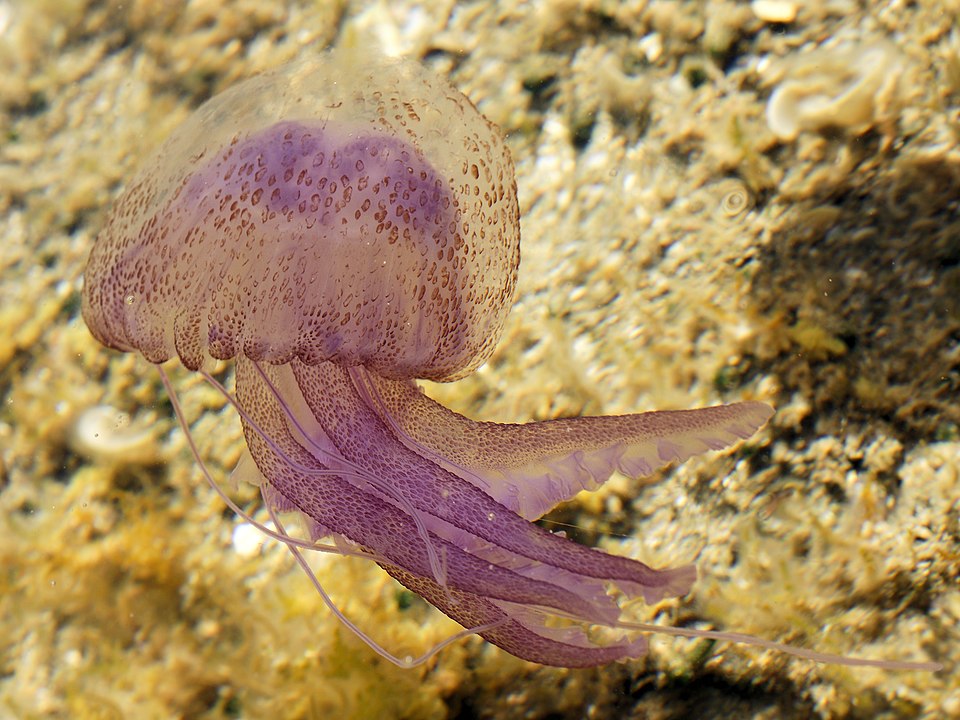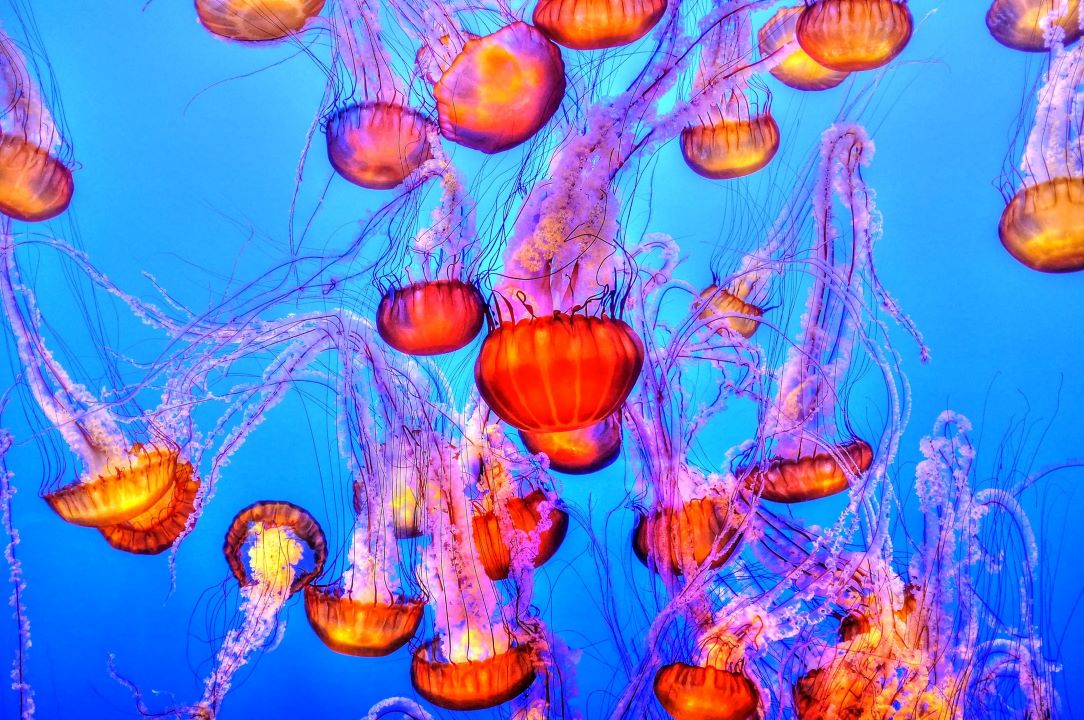From about mid-June, swimmers and biologists alike can see an enormous amount of purple jellyfish on the beaches of the Cote d’Azur near Corsica. An encounter with a jellyfish is unpleasant and painful, but science uses its presence in many ways.
Ancient Sea Creatures
Jellyfish have been on the planet for 600 million years and were among its first inhabitants. Pelagia noctiluca luminous jellyfish can be found in all parts of the Mediterranean. Up to 98 percent of their body is water, and they have no brain. These creatures can swim and float but cannot resist sea currents. Therefore, they are often seen near the coasts. There are currently thousands of them in Ajaccio, Corsica.

In the 1980s and 1990s, Villefranche-sur-Mer alternated between five or six-year periods with a significant occurrence of jellyfish and without them. However, for the past 25 years, jellyfish have been non-stop in the Mediterranean, says Fabien Lombard of the Oceanographic Center in Villefranche-sur-Mer. Most likely, the overfishing of their natural enemies – tuna and turtles – is the main reason of jellyfish overpopulation.
Jellyfish Help Science
Jellyfish have helped lead to several scientific discoveries. Science has found jellyfish have great potential. In addition to being fish food, they are also a good fertilizer and soil moisture stabilizer, used when growing wine in the Landes department, rice in China, or basil in Mexico.

Collagen from jellyfish is used in cosmeceuticals, putting in diaper panties or women’s panties in Israel. It is added to concrete in buildings to withstand earthquakes In Russia. However, Lombard considers the most promising use to be the fact that there is a molecule in jellyfish mucus that can support the growth of human cartilage.
Encountering these ancient creatures can be painful. Jellyfish like to touch everything in their vicinity to determine if it is suitable food while excreting a stinging poison. However, hunting and eating them does not solve the problem. Therefore, there is a need to stabilize their natural predators.
Source: www.researchgate.net/publication/268757402_Jellyfish_populations_in_the_Mediterranean_Sea, AFP, Wikipedia, featured photo: Photo by Francis Taylor on Unsplash















